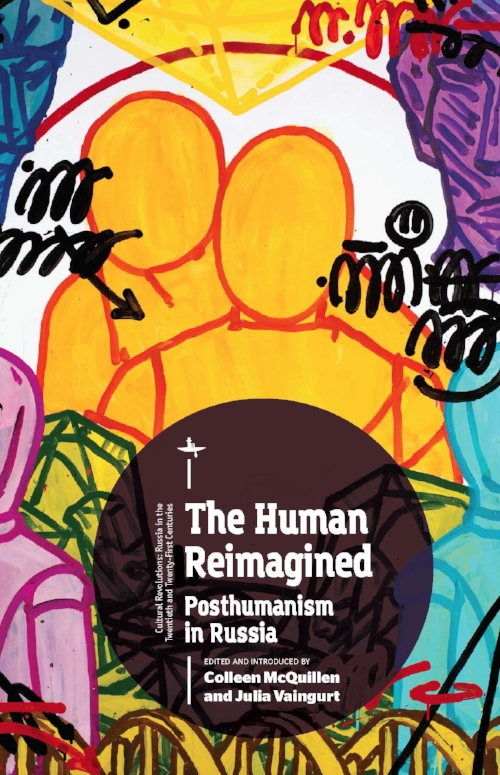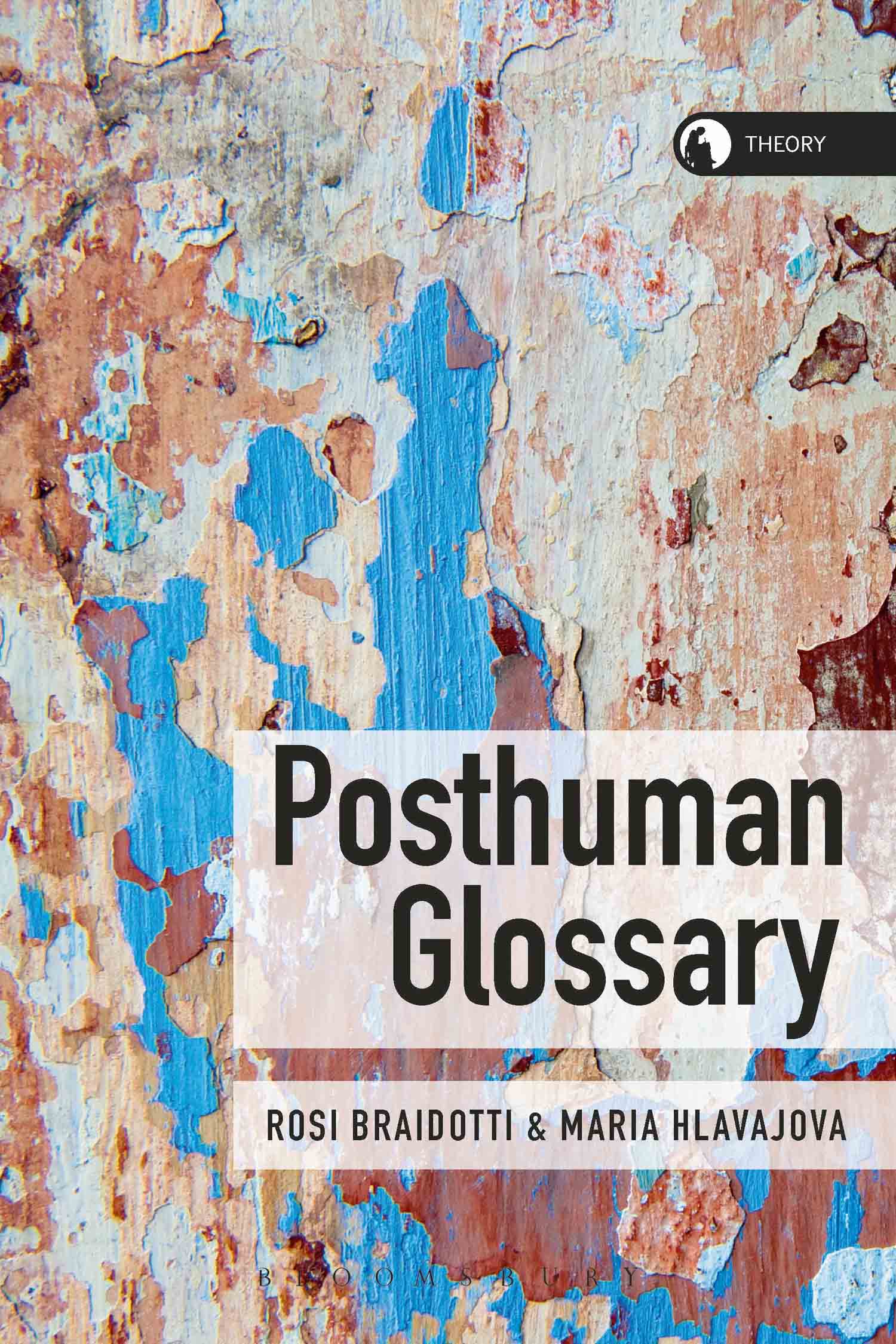Colleen McQuillen, Julia Vaingurt (eds.): The Human Reimagined: Posthumanism in Russia (2018)
Filed under book | Tags: · art history, cosmism, enlightenment, human, humanism, literary history, posthumanism, russia, self, technology, transhumanism, utopia

“The enmeshment of the human body with various forms of technology is a phenomenon that characterizes lived and imagined experiences in Russian arts of the modernist and postmodernist eras. In contrast to the postrevolutionary fixation on mechanical engineering, industrial progress, and the body as a machine, the postmodern, postindustrial period probes the meaning of being human not only from a physical, bodily perspective, but also from the philosophical perspectives of subjectivity and consciousness. The Human Reimagined examines the ways in which literary and artistic representations of the body, selfhood, subjectivity, and consciousness illuminate late- and post-Soviet ideas about the changing relationships among the individual, the environment, technology, and society.”
Contributors include: Alex Anikina, Keti Chukhrov, Jacob Emery, Elana Gomel, Sofya Khagi, Katerina Lakhmitko, Colleen McQuillen, Jonathan Brooks Platt, Kristina Toland, Julia Vaingurt, Diana Kurkovsky West, Trevor Wilson
Publisher Academic Studies Press, Boston, 2018
Cultural Revolutions: Russia in the 20th and 21st Centuries series
ISBN 9781618117328, 1618117327
viii+268 pages
Reviews: Aaron Winslow (LA Review of Books, 2019), Maria Rubins (Slavonic and East European Review, 2019).
PDF (3 MB)
Comment (0)Helen Hester: Xenofeminism (2018–) [EN, ES]
Filed under book | Tags: · accelerationism, automation, cyberfeminism, feminism, futurity, gender, materialism, neorationalism, posthumanism, reproduction, technology, women, xenofeminism

“In an era of accelerating technology and increasing complexity, how should we reimagine the emancipatory potential of feminism? How should gender politics be reconfigured in a world being transformed by automation, globalization and the digital revolution?
These questions are addressed in this bold new book by Helen Hester, a founding member of the ‘Laboria Cuboniks’ collective that developed the acclaimed manifesto ‘Xenofeminism: A Politics for Alienation’. Hester develops a three-part definition of xenofeminism grounded in the ideas of technomaterialism, anti-naturalism, and gender abolitionism. She elaborates these ideas in relation to assistive reproductive technologies and interrogates the relationship between reproduction and futurity, while steering clear of a problematic anti-natalism. Finally, she examines what xenofeminist technologies might look like in practice, using the history of one specific device to argue for a future-oriented gender politics that can facilitate alternative models of reproduction.
Challenging and iconoclastic, this visionary book is the essential guide to one of the most exciting intellectual trends in contemporary feminism.”
Publisher Polity Press, 2018
Theory Redux series
ISBN 1509520627, 9781509520626
v+169 pages
via calamitousannunciation
Reviews: Emma Rees (Times Higher Education, 2018), Rhian E. Jones (New Humanist, 2018), Mareile Pfannebecker (LSE Review of Books, 2018), Peter Heft (The Mantle, 2018), Diana Young (Kontradikce, 2019), Dharmender Dhillon (Philosophy Now, 2020), Alison MacKenzie (Postdigital Science and Education, 2021).
English: HTML (added on 2018-6-1), PDF (4 MB)
Spanish: PDF (trans. Hugo Salas, 2018, added on 2021-1-22)
Rosi Braidotti, Maria Hlavajova (eds.): Posthuman Glossary (2018)
Filed under book | Tags: · activism, algorithm, anthropocene, art, body, capitalism, capitalocene, cybernetics, ecology, feminism, human, inhuman, new materialism, philosophy, posthuman, posthumanism, theory

“If art, science, and the humanities have shared one thing, it was their common engagement with constructions and representations of the human. Under the pressure of new contemporary concerns, however, we are experiencing a “posthuman condition”; the combination of new developments–such as the neoliberal economics of global capitalism, migration, technological advances, environmental destruction on a mass scale, the perpetual war on terror and extensive security systems–with a troublesome reiteration of old, unresolved problems that mean the concept of the human as we had previously known it has undergone dramatic transformations.
The Posthuman Glossary> is a volume providing an outline of the critical terms of posthumanity in present-day artistic and intellectual work. It builds on the broad thematic topics of Anthropocene/Capitalocene, eco-sophies, digital activism, algorithmic cultures and security and the inhuman. It outlines potential artistic, intellectual, and activist itineraries of working through the complex reality of the ‘posthuman condition’, and creates an understanding of the altered meanings of art vis-à-vis critical present-day developments. It bridges missing links across disciplines, terminologies, constituencies and critical communities. This original work will unlock the terms of the posthuman for students and researchers alike.”
Publisher Bloomsbury Academic, 2018
Theory series
ISBN 1350030252, 9781350030251
xxxii+538 pages

